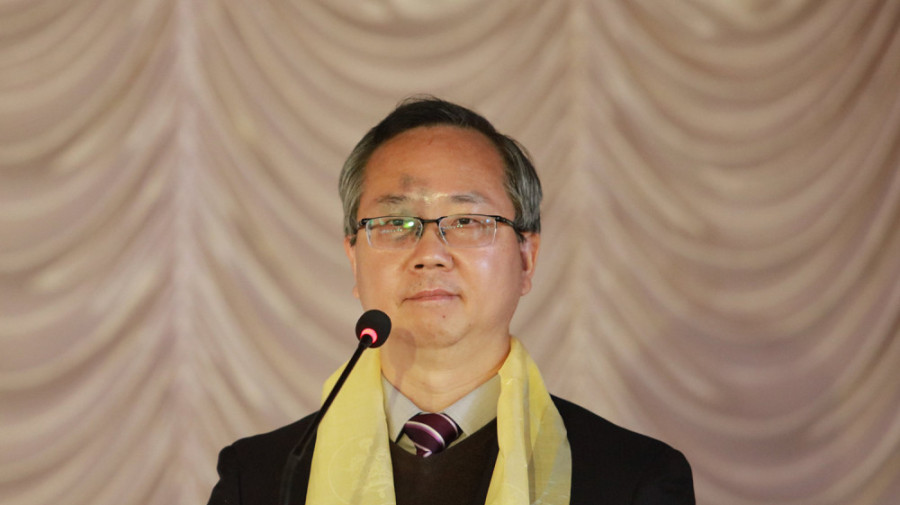Editorial
More than just Chinese whisper
Diplomats shouldn’t jeopardise relations between neighbours with their impromptu remarks.
Prime Minister Pushpa Kamal Dahal’s visit to the northern neighbour, China, is less than two weeks away. Officials are making final preparations for the negotiations planned during the visit, and the last thing the two sides want is an untimely remark that creates an environment of mistrust. But that is exactly what happened this Saturday when Chinese Ambassador to Nepal Chen Song made an inappropriate remark on Nepal-India relations. This, at a programme titled “China in the Global Economy and its Impact in Nepal”. His delivery was clearly undiplomatic.
No, it wasn’t a fumble of a novice bureaucrat making their first public speech, nor a gentle tap on the shoulder by a seasoned diplomat on binational relations. It was a tirade about a neighbouring country’s trade relations with a third country. “Unfortunately, you have a neighbour like India, but fortunately you have a neighbour like India, because India is a huge market with huge potential you can tap into,” Ambassador Chen said in his speech. “But at the same time, India’s policy towards Nepal and other neighbours is not so friendly and not so beneficial to Nepal. So we call that policy of constraints.”
Kathmandu acknowledges the grand gestures of its neighbours and welcomes them with arms wide open. However, as a strategically important country, often considered a Himalayan frontier, Nepal has to perform a diplomatic balancing act. As a vulnerable economy, it has to placate one country or the other to fulfil its development goals. And the country’s leaders of various ideological hues often use one ploy or another to fulfil their self-serving interests. But that in no way is an invitation for a foreign diplomat to dictate the Nepali state’s terms of engagements with its friendly neighbours, and this applies to northern and southern sides alike—or any of our other foreign partners for that matter.
Kathmandu would like its neighbours to take their rhetorical warfare elsewhere—if they have to engage in a war of words at all. Lest Chinese friends bemoan Nepalis’ discomfort with Ambassador Chen’s untimely and undiplomatic remarks, Nepal has always resisted attempts by neighbours—notwithstanding their economic leverage—to pigeonhole its diplomatic relations into a monotonous, misleading narrative built by others. Kathmandu shares dynamic, multi-dimensional relationships with its neighbours. And the neighbours that fail to understand its approach stand to lose out on a relationship of mutual respect and trust.
Having said that, Nepal must acknowledge Ambassador Chen’s concerns about its industrial, technological and agricultural constraints. During the discussion, the ambassador pointed out that Nepal was not generating any agricultural or industrial products, and that the country’s manufacturing sector had decreased from 14 percent of GDP to less than 10 percent. It is true that our economy is not booming at the moment, but it is inappropriate for a diplomat to comment on our internal affairs. Such remarks will have far-reaching consequences for Nepal’s diplomatic relations with its neighbours—and none of them will be salubrious for bilateral ties.




 16.12°C Kathmandu
16.12°C Kathmandu














